While the social and economic effects of COVID-19 are likely to last for many years, careful recovery planning can mitigate negative long-term impacts. For Indonesia, reassessing its reliance on coal for electricity would be an important step in the country’s green recovery.
This is the third Environmental Performance Review of Ireland. Ireland’s progress in delinking the economy from environmental pressures has been uneven in the last decade. Encouraging businesses and households to take action is key.
In the past decade, greenhouse gases and air pollutant emissions, municipal waste generation, energy and material consumption, and water abstractions decreased, However, Belgium's performance remains insufficient to halt biodiversity loss and to alleviate the growing pressures of demographic development, urbanization and intensive agricultural practices.
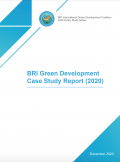
This report showcases 13 projects covering eight fields, namely, biodiversity and ecosystem, clean energy, clean water, sustainable transportation, solid waste treatment, sustainable consumption and production, green buildings, and corporate social responsibility.
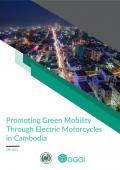
Cambodia is one of the fastest-growing economies in Southeast Asia, with an average annual GDP growth rate of 7.7% between 1995 and 2018. The overall objective of this study is to develop an investment project proposal that can facilitate the deployment of electric motorcycles (EM) in Cambodia and contribute to the reduction of GHG emissions in the transport sector
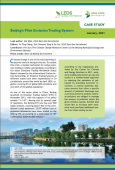
The case study summarises key points regarding the experience of the Beijing ETS, which was launched in November 2013 as one of the seven pilots in China.
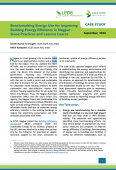
This case study captures Nagpur city’s efforts in understanding the energy performance and identifying the potential and opportunities for energy efficiency actions. An approach for benchmarking and prioritization of buildings for action was tested and established by the city.
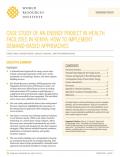
This report analyses the factors that underpinned the loan repayment and highlighted the importance of the demand-based approach when designing energy access projects.
This case study explores how public-private partnerships can help make clean technologies for turning waste into energy accessible to cities.
This report presents the results of the implementation of the Global Bioenergy Partnership (GBEP) indicators in Viet Nam. The overall objective of the project was to strengthen the capacity of Viet Nam and Paraguay to monitor the environmental, social and economic impacts of their bioenergy sector, through the implementation of the GBEP Sustainability Indicators for Bioenergy and related technical support.
